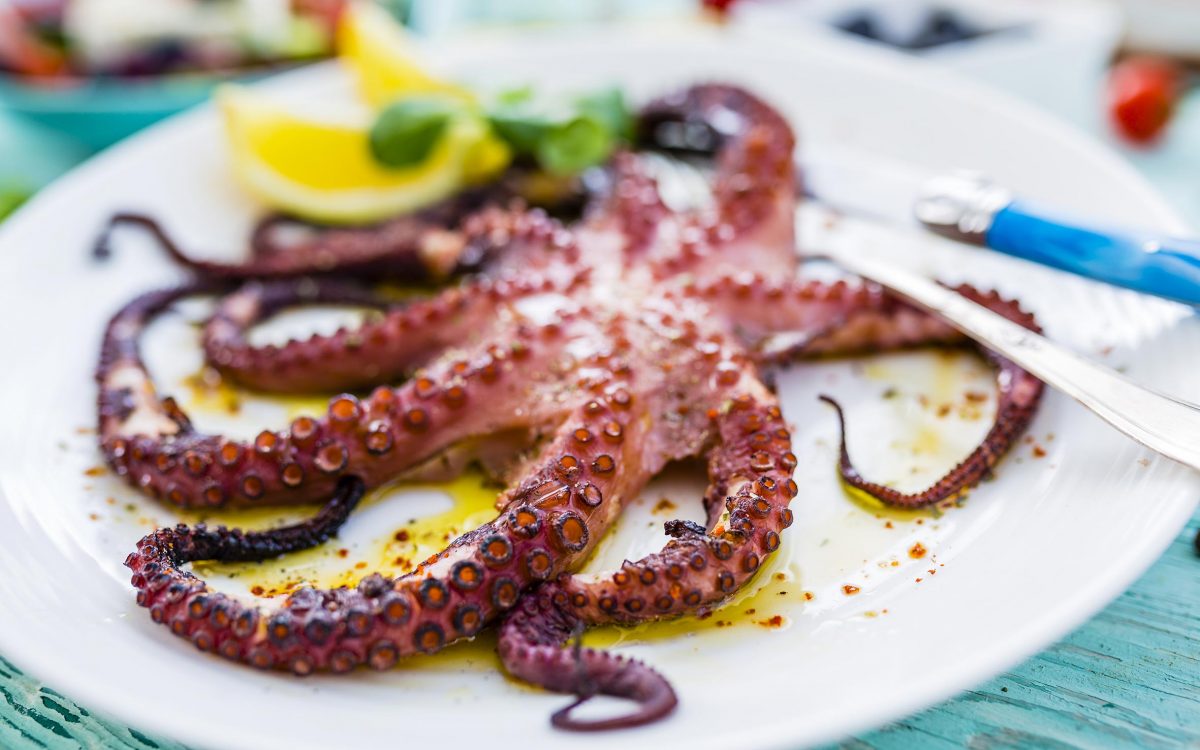A dish perhaps even more iconic than moussaka and fasolada, octopus is a staple food in Greece, cooked in various ways throughout the year. It is marinated in vinegar, cooked into stews, added to pasta and, of course, cooked on the grill. The sight of octopus strung up ready for the barbecue at seaside tavernas is an archetypical image of Greek summer, evoking both memories and pangs of hunger.
While cooking octopus at home might seem intimidating, many recipes are as straightforward as they are delicious. If you love the grilled version you’ve had at tavernas, but wish to avoid having a smoky barbeque, this recipe is for a similar dish cooked in the oven. To elevate its flavor even more, a citrus sauce with olive paste and herbs is drizzled on top.
Method
Preheat your oven to 200°C.
Clean the octopus. You can ask your fish monger to prepare it for you by removing the innards, ink sac, head and beak, so all you need to do is rinse it and strain it.
Place your octopus in a suitably sized baking dish, with the suckers turned upward.
Add the bay leaf and the peppercorns, and cover the dish with aluminum foil, and place in the oven to cook in its own juices for 45 minutes to an hour.
Before removing from the oven, remove the aluminum foil and keep cooking until the color turns a deep pink.
Sauce:
Add the oil, vinegar and fruit juice to a blender, and mix well.
Before serving, add the olive paste and herbs to the sauce.
Serving:
Cut your octopus into separate tentacles, and place on a serving dish, drizzled with the citrus sauce.
Tip:
Keep the octopus juices left in the baking dish, add some wine, and use it to cook a nice pilaf.
This recipe was previously published in Greek at gastronomos.gr.
Ingredients
1 circa 2 kg octopus, cleaned (you can ask your fish monger to do this for you)
1 bay leaf
5 whole peppercorns
2 tbsp. olive oil
for the sauce:
150 ml olive oil
30 ml white wine vinegar
2 tbsp. lemon juice
2 tbsp. orange juice
1 tbsp. fresh, or 1 tbsp. dried, mint or oregano
1 tbsp. olive paste















